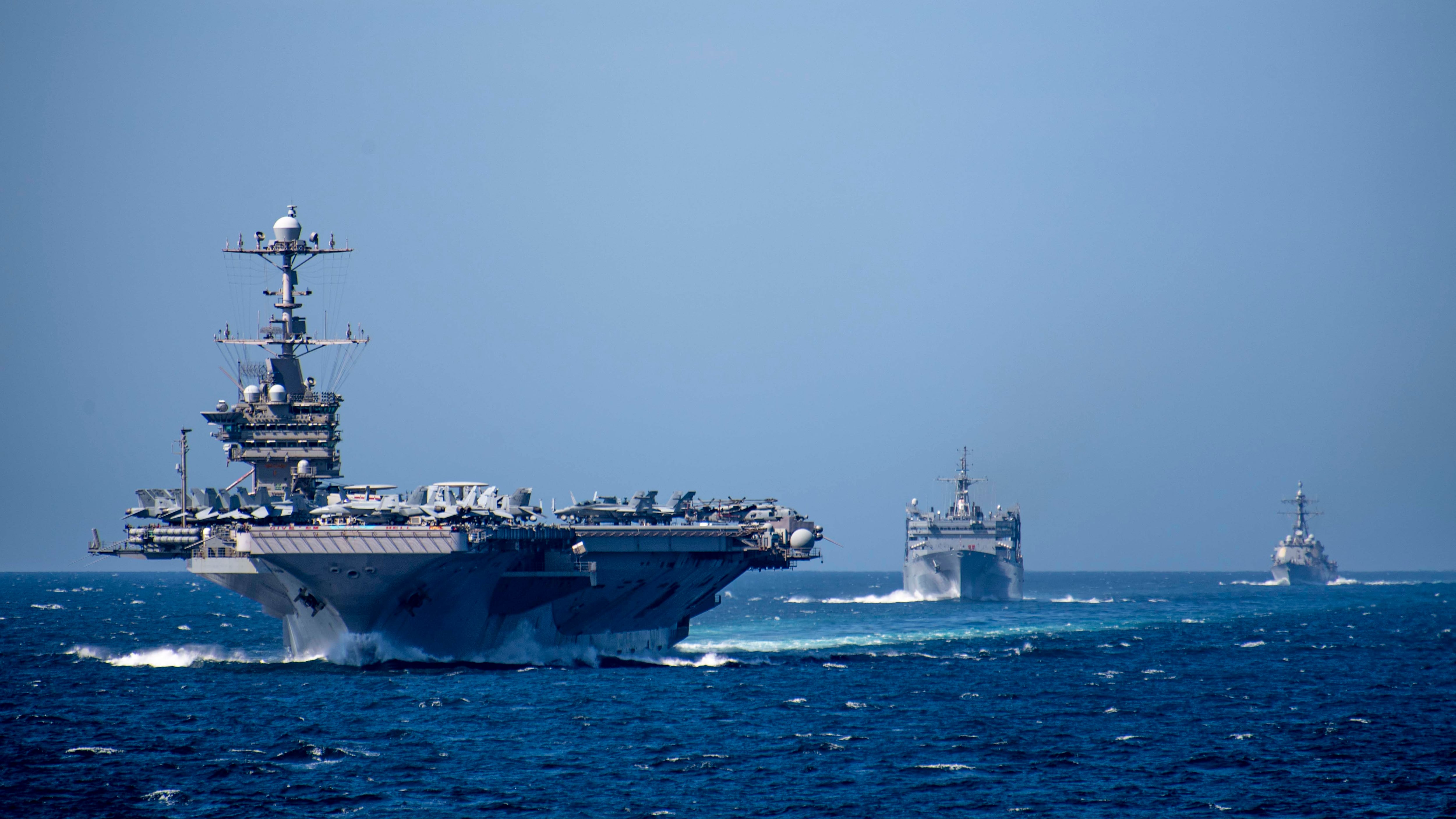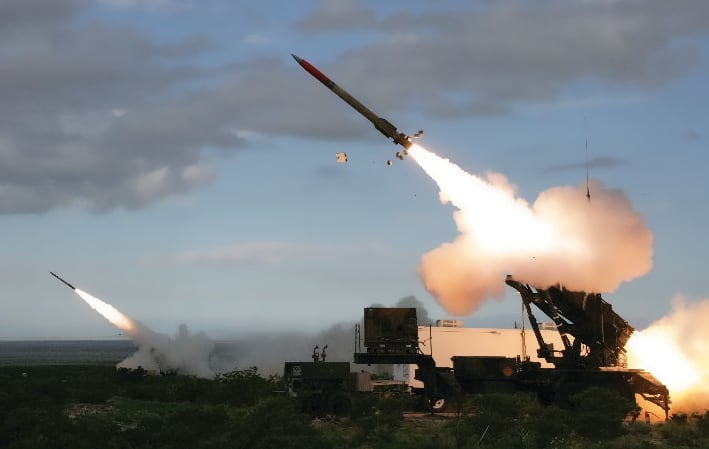The Pentagon is deploying additional air defense systems to Iraq to better protect U.S. troops from missile and rocket attacks by the Islamic Republic of Iran and its proxies. The Pentagon is also consolidating troops at larger and better-protected bases, which will save lives and preserve the American combat power necessary to respond to any additional aggression.
The Department of Defense confirmed last week that it deployed Patriot air and missile defense systems to Iraq. The two batteries went to Ain al-Asad Air Base and Irbil Air Base — three months after Tehran targeted those bases with ballistic missile attacks. Tehran took advantage of the lack of ballistic missile defenses, injuring dozens of U.S. troops.
The Patriot systems provide a ground-based air defense capability against a variety of threats, including aircraft, cruise missiles and ballistic missiles like those Tehran launched in January. The Patriot includes a launcher, a radar to track targets, a manned control station and a power generator.
Washington has reportedly engaged in talks with Baghdad since January regarding the deployment. But apparent difficulties in obtaining permission from Baghdad delayed the Patriots’ arrival — leaving American troops vulnerable to ballistic missile attack longer than necessary.
The eviction of U.S. forces from Iraq represents a major strategic objective for the Islamic Republic of Iran, and Tehran has used its extraordinary influence in Baghdad to push for an American departure regardless of the interests of the Iraqi people.
RELATED

Even though Patriot systems are entirely defensive, the Islamic Republic responded to their deployment by suggesting the U.S. was engaging in “warmongering” that would lead to “instability and disaster.”
Tehran understands that the Patriots limit its options for additional aggression. But it also knows that the Patriots cannot defend against the rockets that the Islamic Republic’s proxies in Iraq have repeatedly lobbed with deadly effect at U.S. and coalition troops.
Accordingly, the DoD has also deployed counter-rocket, artillery and mortar systems to some locations in Iraq. The Pentagon typically relies on these systems to defend the Patriot batteries, but C-RAM systems can also protect personnel from rocket attacks.
Up until recently, however, U.S. troops were deployed all across Iraq in many bases large and small — making it difficult to protect each from rocket attacks.
On March 11, Kata’ib Hezbollah — an Iran-backed Shiite militia also known as KH that operates in both Iraq and Syria — attacked Camp Taji with 107mm rockets, killing an American soldier and airman as well as a British medic.
In response, on March 12, the U.S. struck five KH weapon storage sites.
Two days later, another rocket attack on Camp Taji injured three U.S. service members.
And on March 17, rockets struck a base south of Baghdad hosting U.S. and coalition troops.
These attacks underscore the importance of the U.S. Army’s efforts to develop and field a next-generation indirect fire protection capability that can better defend U.S. service members from rocket attack. The Army should also explore expediting the deployment of the Iron Dome systems it has already purchased.
In the meantime, the Pentagon has vacated several bases in Iraq, consolidating forces on larger and better protected bases that will benefit from the protection the Patriots and C-RAM systems provide.
In fact, over the past month, the U.S. transferred at least four bases to the Iraqi security forces. They include al-Qaim, Qayyarah Airfield West, K1 Air Base and Al Taqaddum Air Base.
Some of the troops will depart Iraq, and some will reposition to other bases in country. Pentagon officials say the base transitions and troop movements are a result of success against ISIS and were long-planned, rather than a response to recent rocket attacks.
Regardless, consolidating U.S. troops on bases protected by Patriot and C-RAM systems would afford the Americans better protection.
That is a positive but likely insufficient step.
Tehran is unlikely to stop its use of asymmetrical proxy terrorist attacks that have featured prominently in the regime’s foreign policy since 1979. The economic and coronavirus crises in Tehran may encourage the regime to undertake desperate measures and double down on this policy. That would likely include additional aggression against American diplomats and service members in Iraq and elsewhere.
The Pentagon and its coalition partners in Iraq should make clear to Baghdad that it has a responsibility to prevent attacks. If Baghdad is unwilling or unable to provide such protection, American service members must have every tool necessary at their disposal to defend themselves and to punish additional aggression.
Bradley Bowman is senior director for the Center on Military and Political Power at the Foundation for Defense of Democracies, where Maj. Liane Zivitski is a visiting military analyst. Views expressed or implied in this commentary are solely those of the authors and do not necessarily represent the views of the Air University, the U.S. Air Force, the Defense Department or any other U.S. government agency.





